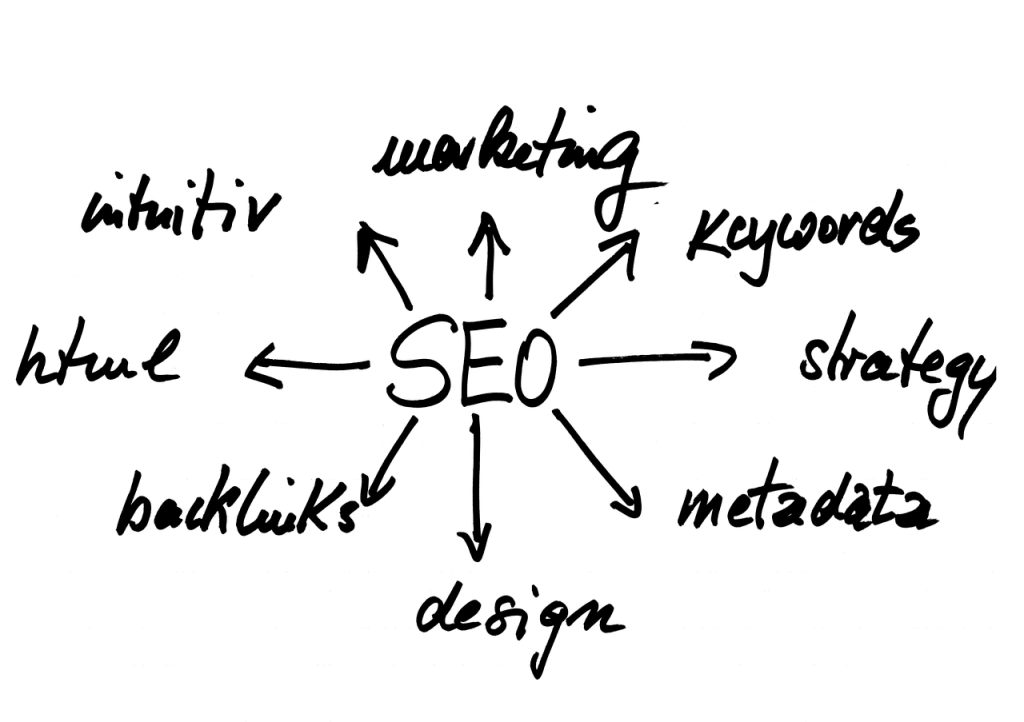Becoming an SEO Rank Hunter: Strategies for Success

In today’s world where we’re all about the internet for everything, like finding stuff, shopping, and talking to friends, it’s super important to make sure your website stands out. That’s where SEO comes in. It’s like the special ingredient that helps your website get noticed in the big online world. Let’s chat about why SEO is so important, introduce the idea of an SEO Rank Hunter, and talk about the main goal of getting your website to the top of search engine lists.
Table of Contents
The Importance of SEO in the Digital Landscape
The internet is a sprawling universe of content, with millions of websites competing for the attention of users. Amid this digital cacophony, SEO emerges as the guiding light that ensures websites stand out. Here’s why SEO is crucial:
Visibility: In a world where Google alone processes billions of searches daily, appearing on the first page of search engine results is akin to having a prime location in a bustling marketplace. SEO helps websites secure this coveted spot, ensuring they are visible to the right audience.
Credibility: Users tend to trust search engine results. When a website ranks highly, it not only gains visibility but also credibility. People are more likely to click on and engage with websites that rank well, assuming they are authoritative and reliable sources of information.
Traffic and Conversions: SEO isn’t just about getting more clicks; it’s about attracting the right kind of traffic—users who are actively seeking the products, services, or information a website provides. This targeted traffic is more likely to convert into customers, subscribers, or loyal readers.
Competitive Advantage: Your competitors are investing in SEO. To stay competitive, you must do the same or risk falling behind. A well-executed SEO strategy can give you an edge in your industry.

The Role of an SEO Rank Hunter
The term “SEO Rank Hunter” might sound new, but it basically sums up what an SEO expert does. An SEO Rank Hunter works to get websites to rank higher on search engines. Here’s what they do:
Keyword Research: SEO Rank Hunters dig deep to find the best keywords related to a website’s topic. They figure out what people are searching for and then tweak the website to match those keywords.
On-Page Optimization: They make sure everything on the website is set up to please search engines. This means tweaking things like titles, headings, and the way content is organized.
Off-Page Strategies: SEO Rank Hunters also work outside of the website itself. They build links from other sites, promote on social media, and work on making the website more well-known. This all helps the site look good to search engines.
Analytics and Adaptation: They keep a close eye on how the website is doing using tools like Google Analytics. If something isn’t working, they change tactics to try and improve the site’s ranking.
Staying Updated: SEO is always changing, with search engines tweaking their algorithms regularly. SEO Rank Hunters keep up with these changes so they can adjust their strategies and keep websites ranking high.
Understanding the SEO Landscape
Understanding the ins and outs of SEO is crucial for anyone aiming to excel as an SEO Rank Hunter in today’s fast-changing digital world. This section will dive into the basics of SEO, covering topics like how search engines work, the constantly changing trends in SEO, and why keywords and understanding user intentions are so important.
Basics of Search Engines and Algorithms
Search Engines Defined: Start by demystifying the role of search engines like Google, Bing, and Yahoo. Explain how search engines function as gatekeepers, sorting and delivering the most relevant web content to users based on their queries.
The Algorithm Puzzle: Introduce the concept of search engine algorithms, the complex sets of rules and criteria that determine how search results are ranked. Mention that these algorithms are constantly evolving to provide more accurate and user-friendly results.
Ranking Factors: Briefly touch upon some of the key ranking factors that search engines consider, such as content quality, backlinks, website speed, and mobile-friendliness.
Significance of Keywords and User Intent

Keyword Research Revisited: Elaborate on the critical role of keywords in SEO. SEO Rank Hunters must conduct thorough keyword research to understand what users are searching for and to optimize their content accordingly.
Long-Tail Keywords: Introduce the concept of long-tail keywords, explaining that they often have less competition and can be highly targeted. They are especially important for capturing niche audiences.
User Intent Matters: Stress the importance of understanding user intent behind search queries. Explain that search engines aim to provide results that best match the user’s intent, and SEO Rank Hunters should align their content with these intentions.
Content Relevance: Emphasize that SEO Rank Hunters should create content that not only incorporates keywords but also provides valuable and relevant information to users. Search engines reward content that satisfies user queries.
Building a Strong SEO Foundation

A solid SEO foundation forms the cornerstone for effective SEO professionals to craft their strategies. In this section, we’ll delve into the key components of this foundation, covering not only the basics of on-page SEO essentials such as optimizing content and meta tags but also the technical aspects like website speed optimization, mobile-friendliness, and site structure. These elements collectively lay the groundwork for achieving higher search engine rankings and improving overall website performance.
1. On-Page SEO Essentials
Optimizing Meta Tags and Descriptions
Explain the significance of title tags and meta descriptions in providing a concise summary of web page content. Provide guidelines for crafting compelling and keyword-rich meta tags.
Crafting High-Quality Content
Stress the importance of high-quality, engaging content. Discuss how content should not only be informative but also structured well, making it easy for both users and search engines to understand.
Structuring URLs for SEO
Highlight the role of URL structure in SEO. Describe best practices for creating clean, descriptive URLs that include relevant keywords.
Header Tags and Content Hierarchy
Explain the importance of using header tags (H1, H2, H3, etc.) to structure content hierarchically. Show how this aids both user experience and search engine crawlers.
Internal Linking Strategies
Discuss the significance of internal linking for guiding users to relevant content within your website. Explain how it can also distribute link equity and boost the visibility of important pages.
2. Technical SEO Fundamentals
Mobile-Friendliness and Site Speed
Highlight the critical role of mobile-friendliness in SEO, as mobile usage continues to grow. Discuss the impact of site speed on user experience and search rankings.
Structured Data and Schema Markup
Introduce structured data and schema markup as tools to provide search engines with structured information about your content. Explain how this can lead to rich results and enhanced visibility in search.
XML Sitemaps and Robots.txt
Explain the purpose of XML sitemaps in helping search engines discover and index your web pages efficiently. Describe how the robots.txt file is used to instruct search engine crawlers on what to access and what to avoid.
Canonical Tags
Discuss the use of canonical tags to avoid duplicate content issues. Explain how they indicate the preferred version of a page when multiple versions exist.
Internal Linking Strategies
Discuss the significance of internal linking for guiding users to relevant content within your website. Explain how it can also distribute link equity and boost the visibility of important pages.
Keyword Research and Analysis
Keyword research is the compass that guides SEO Rank Hunters toward their destination. This section will delve into the art and science of keyword research, offering insights into identifying valuable keywords and understanding the competition.
The Art of Effective Keyword Research
Understanding User Intent: Explain how understanding user intent is the foundation of keyword research. Differentiate between informational, transactional, and navigational search queries.
Keyword Tools and Resources: Introduce various keyword research tools like Google Keyword Planner, SEMrush, and Ahrefs. Provide tips on how to use these tools effectively to discover relevant keywords.
Long-Tail Keywords: Emphasize the importance of long-tail keywords, which are often less competitive and more targeted. Show how they can be a goldmine for niche-focused content.
Tools and Techniques for Identifying Valuable Keywords
Competitor Analysis: Describe how analyzing competitor websites can yield valuable keyword insights. Explain techniques for identifying keywords that competitors are ranking for.
Search Volume and Keyword Difficulty: Discuss the balance between search volume and keyword difficulty. Highlight that targeting highly competitive keywords may not always be the best strategy for newcomers.
Keyword Variations and Synonyms: Encourage SEO Rank Hunters to explore keyword variations and synonyms. These can help capture a broader range of search queries.
Content Creation and Optimization
When it comes to SEO, content is absolutely key. In this section, we’re going to talk about how to create content that’s not just good for readers but also boosts your search engine ranking. We’ll cover everything from why long-form content works so well to how to use images and videos effectively. Plus, we’ll dive into the importance of picking the right keywords and formatting your content in a way that makes it easy for both people and search engines to understand. Let’s get into it!

Crafting SEO-Friendly Content
Keyword Integration: Explain seamlessly integrating keywords into content without keyword stuffing. Emphasize the importance of natural language and readability.
Content Structure: Discuss the significance of structuring content with headers, bullet points, and clear sections. Show how this improves user experience and makes content more scannable.
Unique and Valuable Content: Stress the importance of creating unique and valuable content that provides solutions, answers questions, or entertains. Search engines favor content that fulfills user needs.
The Power of Long-Form Content
Alright, let’s talk about long-form content. This is basically the kind of stuff you read that’s really thorough and goes into a lot of detail, like those articles or blog posts that are super long, like over 1,500 words. It’s like when you’re really digging deep into a topic, not just skimming the surface.
Now, why does this matter for SEO? Well, search engines really like this kind of content because it’s packed with useful info. And because it’s so good, other websites are more likely to link to it, and people are more likely to share it on social media. All of that means your content has a better chance of showing up higher in search results.
Incorporating Multimedia and User Engagement
Multimedia Elements: Encourage using multimedia elements like images, videos, infographics, and charts to enhance content. Explain how multimedia can improve engagement and understanding.
User Engagement Signals: Discuss how user engagement signals, such as time on page, bounce rate, and social shares, indirectly impact SEO rankings. Explain that engaging content keeps users on the page longer.
Mobile Optimization: Emphasize the importance of mobile-friendly content, as mobile users make up a significant portion of web traffic. Explain responsive design and its role in mobile optimization.
Avoiding Duplicate Content Issues
Duplicate Content Defined: Define duplicate content and its potential negative impact on SEO. Explain that it can lead to confusion for search engines in determining the most relevant page.
Canonicalization: Introduce canonical tags as a solution to duplicate content issues. Explain how they help specify the preferred version of a page when multiple versions exist.
On-Page and Off-Page SEO Strategies
In the ever-competitive world of SEO, SEO Rank Hunters need to employ both on-page and off-page strategies to enhance a website’s visibility and authority. This section explores the key tactics and techniques for success in both areas.
• Header Tags and Content Optimization: Reiterate the importance of header tags (H1, H2, etc.) in content hierarchy. Explain how to use them effectively and optimize content for readability and SEO.
• Internal Linking Strategies: Dive deeper into internal linking, emphasizing how it can distribute link equity, improve navigation, and boost the ranking of important pages within your website.
• User Experience Enhancement: Discuss the role of user experience (UX) in SEO. Explain that user-friendly, well-designed pages lead to higher engagement and improved rankings.
• Link Building Strategies: Elaborate on the art of link building, emphasizing that high-quality backlinks are a major ranking factor. Discuss strategies like guest posting, influencer outreach, and content promotion.
• Social Media and Brand Building: Explain how a strong presence on social media platforms can indirectly benefit SEO. Discuss the relationship between brand recognition and search engine rankings.
• Online Reputation Management: Touch upon the importance of managing online reviews and reputation. Explain that positive reviews and a good online reputation can influence search engine rankings.
• Targeting Local Audiences Effectively: Discuss the significance of local SEO for businesses targeting geographically specific audiences. Explain techniques such as optimizing Google My Business listings, local citations, and geo-targeted content.
• Mobile-First Indexing and Responsive Design: Reiterate the importance of mobile optimization and responsive design. Explain that mobile-first indexing is now the norm for search engines, making mobile-friendly websites crucial.
• Expanding Your Reach Globally: Discuss the strategies for international SEO when targeting audiences in multiple countries. Explain the importance of hreflang tags for indicating language and regional targeting.
• Multilingual Content: Touch upon the creation of multilingual content and the challenges of catering to diverse audiences while maintaining SEO best practices.
• Strategies for Achieving Featured Snippets: Explain the significance of featured snippets in search results and provide strategies for optimizing content to earn these coveted positions.
• Structured Data and Schema Markup for Rich Results: Discuss how structured data and schema markup can enhance search results with rich snippets, such as star ratings, pricing information, and event details.
Effectively combining on-page and off-page SEO strategies is essential for SEO Rank Hunters to maximize their impact on search engine rankings. This section equips readers with the knowledge and tactics needed to optimize their websites internally and externally, ultimately leading to improved visibility and authority in the digital landscape.
SEO Analytics and Tracking
Keeping tabs on how well your SEO strategies are working is essential for SEO Rank Hunters. That means using tools like Google Analytics to check website traffic, user behavior on your site, and whether users are taking action, like making purchases or signing up for newsletters. By watching this stuff regularly, you can see what’s working and what’s not and then tweak your strategies accordingly. It’s all about using data to improve your website and get more people to find it through search engines.

Setting Up Google Analytics and Search Console
Google Analytics: Explain the importance of Google Analytics in tracking website traffic and user behavior. Provide step-by-step instructions for setting up Google Analytics on a website.
Google Search Console: Discuss how Google Search Console (formerly Webmaster Tools) offers insights into a website’s visibility on Google. Explain how to verify a website and access essential data.
Monitoring Website Performance and Ranking Changes
Traffic Analysis: Explain how to interpret website traffic data, including metrics like sessions, pageviews, and bounce rate. Discuss how these metrics reflect user engagement and experience.
Ranking Tracking: Introduce tools and techniques for tracking keyword rankings over time. Emphasize the importance of regularly monitoring keyword performance and understanding ranking fluctuations.
Click-Through Rates (CTR): Discuss the significance of CTR in SEO. Explain how optimizing meta tags and descriptions can lead to higher CTRs in search results.
Conversion Tracking and Goal Setting
Defining Conversion Goals: Explain the concept of conversion goals, which can vary from form submissions to product purchases. Discuss how setting clear goals helps measure the effectiveness of SEO efforts.
Conversion Tracking Tools: Introduce tools like Google Tag Manager for tracking conversions. Explain how these tools can help capture valuable data on user interactions.
A/B Testing: Touch upon the importance of A/B testing to optimize landing pages and conversion paths. Explain how experimentation can lead to improved conversion rates.
Identifying Technical Issues and Errors
Crawl Errors: Discuss how to identify and resolve crawl errors using tools like Google Search Console. Explain the impact of crawl errors on SEO rankings.
Site Speed Analysis: Highlight the role of site speed in user experience and SEO. Discuss tools like PageSpeed Insights for analyzing and improving website speed.
Mobile Usability: Stress the importance of mobile usability. Explain how to use tools like the Mobile-Friendly Test to identify and fix issues affecting mobile users.
Reporting and Data Visualization
Creating SEO Reports: Discuss how to create comprehensive SEO reports that showcase key metrics, trends, and improvements. Provide templates or examples for reporting.
Data Visualization Tools: Introduce data visualization tools like Google Data Studio and explain how they can help present complex SEO data in a visually appealing and easy-to-understand format.
Algorithm Updates and Adaptation
Staying ahead in the world of SEO requires a keen eye for algorithm updates and the ability to adapt strategies accordingly. In this section, we’ll explore the dynamic nature of search engine algorithms, the challenges posed by updates, and how SEO Rank Hunters can navigate these changes effectively.

The Dynamic Nature of Search Engine Algorithms
Constant Evolution: Explain how search engine algorithms are in a state of constant evolution. Search giants like Google regularly release updates to refine their algorithms and improve search results.
Algorithm Components: Discuss the various components of search algorithms, such as content quality, backlinks, user experience, and mobile-friendliness. Emphasize that understanding these components is key to SEO success.
Staying Ahead of Google's Algorithm Changes
Google Algorithm Updates: Highlight some of the major Google algorithm updates over the years, such as Panda, Penguin, Hummingbird, and BERT. Explain their primary objectives and impacts on search results.
Algorithm Update Sources: Recommend reliable sources and websites where SEO Rank Hunters can stay updated on the latest algorithm changes, such as Google’s official blog and SEO news publications.
Recovering from Penalties and Updates
Penalty Recovery: Discuss common reasons for Google penalties, such as low-quality content, unnatural backlinks, and duplicate content. Explain the steps to identify and recover from penalties.
Algorithm Update Recovery: Describe how sudden rankings drop due to algorithm updates can be challenging. Provide strategies for analyzing the impact, making necessary changes, and recovering lost rankings.
Future-Proofing Your SEO Strategies
Adaptive SEO Strategies: Emphasize the importance of adaptive SEO strategies that can withstand algorithm updates. Encourage a focus on user-centric approaches and high-quality content.
Diversification: Recommend diversifying SEO efforts to reduce reliance on a single traffic source or keyword. Explain the value of multiple traffic channels and keyword targeting.
User Experience Enhancement: Stress that algorithms often prioritize websites that offer excellent user experiences. Discuss the role of site speed, mobile optimization, and user engagement in future-proofing SEO.
Earning Featured Snippets and Rich Results
In the quest for SEO excellence, obtaining featured snippets and rich results can catapult your website to the top of search engine results pages. This section will explore strategies and tactics for achieving these coveted positions.
Strategies for Achieving Featured Snippets
Understanding Featured Snippets: Begin by explaining what featured snippets are and how they appear at the top of search results, providing direct answers to user queries.
Optimizing Content for Featured Snippets: Detail the steps for optimizing content to earn featured snippets. This includes structuring content with clear headers, concise answers, and using bullet points or tables.
Keyword Targeting: Emphasize the importance of targeting specific keywords or question-based queries likely to trigger featured snippets. Explain how tools like “People Also Ask” can provide insights.
Structured Data and Schema Markup for Rich Results
Defining Rich Results: Explain what rich results are and how they enhance search listings with additional information, like star ratings, images, and prices.
Benefits of Structured Data: Discuss the benefits of structured data and schema markup in enabling rich results. Explain how this structured code helps search engines understand content better.
Types of Rich Results: Provide an overview of various types of rich results, such as recipe snippets, product reviews, and event listings. Explain how different industries can leverage specific types of rich results.
Voice Search Optimization
The Rise of Voice Search: Discuss the growing prominence of voice search and how it differs from traditional text-based searches. Emphasize the need for SEO Rank Hunters to optimize for voice queries.
Answering Voice Queries: Explain how voice searches often present questions and how optimizing content to provide concise and accurate answers can increase the chances of appearing in voice search results.
Video SEO and YouTube Ranking
Importance of Video SEO: Highlight the significance of video content in modern SEO. Explain how optimizing videos for search engines can enhance visibility.
YouTube SEO Techniques: Provide strategies for optimizing YouTube videos, including keyword research, video title and description optimization, and engagement tactics to improve rankings on YouTube’s platform.
SEO for eCommerce Websites
eCommerce SEO Essentials: Discuss the unique challenges and opportunities of SEO for eCommerce websites. Explain the importance of product descriptions, user reviews, and structured data for online stores.
Category and Product Page Optimization: Detail strategies for optimizing category and product pages, including keyword targeting, product schema markup, and building high-quality backlinks.
Case Studies and Success Stories:
In this section, we’ll delve into real-world examples and case studies that showcase the practical application of SEO strategies. These success stories will provide inspiration and valuable insights for aspiring SEO Rank Hunters.
1. Case Study Selection:
Diverse Examples: Include a variety of case studies from different industries, such as e-commerce, local businesses, blogs, and international websites. This ensures a broad understanding of SEO’s versatility.
Success Metrics: Highlight key success metrics for each case study, such as increased organic traffic, improved keyword rankings, or higher conversion rates.
2. E-commerce Success Story:
Case Description: Present a case study of an e-commerce website that achieved significant growth through SEO efforts. Discuss the challenges they faced and the strategies that led to success.
Impact on Revenue: Emphasize the impact of SEO on e-commerce revenue, including specific percentage increases or sales growth.
3. Local Business SEO:
Local Business Success: Share a case study of a local business that improved its online presence and attracted more local customers through SEO.
Google My Business Optimization: Discuss how optimizing Google My Business listings played a crucial role in local SEO success.
4. Blog or Content-Driven Site:
Content Strategy: Showcase a case study of a blog or content-driven website that grew its audience and engagement through content optimization and SEO.
Traffic Growth: Highlight the significant increase in organic traffic and the impact on the website’s monetization strategy.
5. International SEO Expansion:
Global Reach: Present a case study of a website that successfully expanded its global reach through international SEO efforts. Discuss the use of hreflang tags and multilingual content.
Traffic Diversification: Explain how international SEO helped diversify website traffic sources and increase the user base.
Advanced SEO Tactics:
This section explores advanced SEO strategies that go beyond the basics, providing readers with insights into staying ahead of the curve in the ever-evolving world of SEO.
Voice Search Optimization:
Voice Search Challenges: Discuss the unique challenges posed by voice search and the need to optimize for conversational queries.
Featured Snippets for Voice: Explain how optimizing content for featured snippets can increase the likelihood of appearing in voice search results.
Video SEO and YouTube Ranking:
YouTube SEO Mastery: Delve deeper into YouTube SEO techniques, including video keyword research, thumbnail optimization, and audience engagement strategies.
Leveraging YouTube: Highlight the potential of YouTube as a search engine and a platform for building an audience.
SEO for Progressive Web Apps (PWAs):
PWAs Defined: Explain what Progressive Web Apps are and why they are gaining popularity.
SEO Challenges and Solutions: Discuss the specific SEO challenges associated with PWAs and provide strategies for optimizing them for search engines.
The Future of SEO:
In this forward-looking section, we’ll explore predictions and emerging trends in the SEO landscape, equipping SEO Rank Hunters with insights to prepare for the future.
AI and Machine Learning: We’ll talk about how smart computers are changing SEO. They’re helping search engines understand content better and making it easier to create content that people actually want to read.
Voice Search Evolution: Consider how you talk to your phone or smart speaker. Now imagine that’s how people search the internet. We’ll chat about how voice search is getting more popular and what that means for getting your website found.
Mobile-First Indexing: Your phone is like your best buddy, right? Well, search engines are starting to think so too. We’ll talk about why it’s so important to make sure your website looks good and works well on phones and how that can help you climb up the search rankings.
User Experience as a Ranking Factor: Ever get frustrated when a website takes forever to load? Search engines feel your pain. We’ll dive into why giving people a good experience on your site is becoming more important than ever for getting noticed online.
E-A-T and Content Quality: Do you trust certain websites more than others? Well, search engines are starting to consider trust, too. We’ll chat about why it’s so important to make sure your content is accurate, reliable, and written by someone who knows their stuff.
Visual and Video Search: Sometimes words just aren’t enough, right? We’ll explore how search engines are getting better at understanding pictures and videos and what that means for getting your content seen.
Final Words
In the journey to become an SEO Rank Hunter, remember these key takeaways:
SEO’s Vital Role: SEO is essential for online success, driving visibility, credibility, and conversions.
Continuous Learning: SEO is ever-evolving. Stay informed, explore trends, and adapt.
Practical Application: Apply the knowledge gained to your projects and websites.
Professional Help: Consider professional SEO services for complex or ambitious goals.
Stay Curious: The SEO landscape is dynamic. Keep learning, join communities, and seek industry insights.
Becoming an SEO Rank Hunter is not just about achieving top search engine rankings; it’s about staying curious, adapting to change, and continuously improving. The digital landscape is dynamic, and success in SEO requires dedication, knowledge, and a commitment to providing valuable experiences for users. With the insights and strategies learned from this guide, readers are well-equipped to excel in the ever-evolving world of SEO.
Thank you for joining this SEO adventure. Your commitment to mastering SEO is your key to online success. You can also join our BootCamp channel to learn more details about SEO, and then you can start your journey of SEO Rank Hunting in the Digital World. Please do not hesitate to request organic growth for your website. We are always ready to help!
